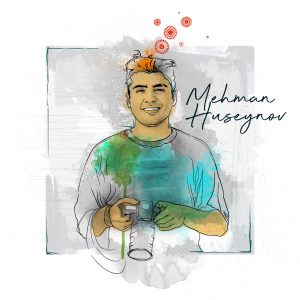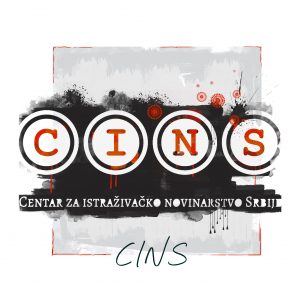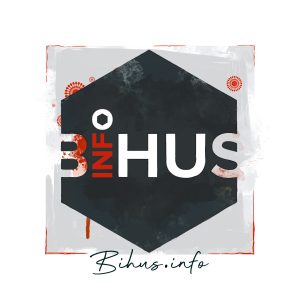28 Mar 2019 | Awards, News and features
[vc_row][vc_column][vc_video link=”https://youtu.be/aRODwaISqKo”][vc_column_text] Mimi Mefo is one of less than a handful of journalists working without fear or favour in Cameroon’s climate of repression and self-censorship. An award-winning broadcast journalist at private media house Equinoxe TV and Radio, Mefo is courageous in her commitment to the truth, journalistic integrity and freedom of expression.
Mimi Mefo is one of less than a handful of journalists working without fear or favour in Cameroon’s climate of repression and self-censorship. An award-winning broadcast journalist at private media house Equinoxe TV and Radio, Mefo is courageous in her commitment to the truth, journalistic integrity and freedom of expression.
Through broadcast reports, social media and a newly founded website, Mefo informs Cameroonians about the escalating violence in the country’s western regions, in a conflict that has become known as the “Anglophone Crisis”. The conflict has caused hundreds of deaths, including civilians, and has exacerbated the already critical condition of media freedom.
The Cameroonian government has long been a direct threat to the press and has recently intimidated and arrested journalists accusing them of supporting terrorists. Between January 2017 and November 2018, at least 15 journalists were detained. Four are still behind bars.
At the same time, the separatist movement has also grown increasingly intolerant to critical media, and journalists like Mefo have been caught in a double-barrelled threat. Mefo has herself been followed home by mysterious cars and faced intimidation, online harassment and imprisonment.
Her job might be under threat, too, as her employer is coming under growing government pressure because of her defiant line. Equinoxe has already been temporarily forced off the air by Cameroonian police in the past, and now faces new threats of sanctions for Mefo’s coverage of the crisis. Her boss has been questioned by government officials, who complained about her reporting and told him she needs to be “reined in”.
Mefo has denounced the harassment of other Cameroonian journalists and used her digital media to inform the public about the abuses and amplify campaigns calling for the release of those jailed.
Her impact has been tangible: one of her tweets denouncing the poor health of journalist Thomas Awah Junior in prison was shared widely, and only then was he allowed to receive treatment. She was also behind the social media campaign that led to the release of Josiane Kouagheu and Mathias Mouende Ngamo hours after they were arrested on 21 and 27 October.
In September 2018 she founded her own website, Mimi Mefo Info, where she publishes updates from her reporting on the ground. After she published reports that the military was behind the death of an American missionary, she was arrested on 7 November on charges of “publishing and propagating information that infringes on the territorial integrity of the Republic of Cameroon”. A social media campaign and pressure from Equinoxe and international organisations were able to secure her release on 10 November. Mefo resumed reporting immediately.[/vc_column_text][vc_separator][vc_row_inner][vc_column_inner width=”1/2″][vc_single_image image=”104691″ img_size=”full” onclick=”custom_link” link=”https://www.indexoncensorship.org/2019/01/awards-2019/”][/vc_column_inner][vc_column_inner width=”1/2″][vc_column_text]
Index on Censorship’s Freedom of Expression Awards exist to celebrate individuals or groups who have had a significant impact fighting censorship anywhere in the world.[/vc_column_text][/vc_column_inner][/vc_row_inner][vc_separator][/vc_column][/vc_row][vc_row][vc_column][vc_basic_grid post_type=”post” max_items=”4″ element_width=”6″ grid_id=”vc_gid:1553854718059-c3a931fd-6c29-7″ taxonomies=”26925″][/vc_column][/vc_row]
27 Mar 2019 | Awards, News and features
[vc_row][vc_column][vc_video link=”https://youtu.be/d40JdCJTbw8″][vc_column_text]
Mehman Huseynov is a journalist and human rights defender who documents corruption and human rights violations in Azerbaijan, consistently ranked among the world’s worst countries for press freedom.
He was sentenced to two years in prison in March 2017 — after describing abuses he had suffered at a police station.
As independent journalist, vlogger, and editor-in-chief of the political magazine SANCAQ, Huseynov has put his life in danger to document largely sensitive issues. His work circulated widely on the internet, informing citizens about the real estate and business empires of the country’s government officials, and scrutinising the decisions of president Ilham Aliyev.
Huseynov was first arrested in 2012 for his role in the Sing for Democracy protests against the profligate spending on the 2012 Eurovision contest in Baku, and since then has been regularly interrogated by authorities, who imposed a travel ban on him and confiscated his documents – preventing access to services like health-care and education. In 2013, Huseynov was awarded one of the Fritt Ord Foundation’s and the ZEIT Foundation’s press prizes for his courageous journalism.
Azerbaijan is an authoritarian country in which power is heavily concentrated in the hands of president Ilham Aliyev, who has ruled the country since 2003. There is little room for independent expression or activism, and critical journalists, civil society leaders and human rights advocates face harassment, violence and detention.
On 9 January 2017 plain-clothes officers attacked Huseynov, blindfolded and gagged him with towels, forced a bag over his head and took him to the Nasimi district police station, where police used an electroshock weapon on his groin and punched him.
On 17 October 2018, Baku Court of Appeal dismissed his appeal against the denial of parole.
Before his release from prison in March 2019, Huseynov remained defiant, saying: “I am not here only for myself; I am here so that your children are not in my place tomorrow. If you uphold the judgement against me, you have no guarantees that you and your children will not be in my place tomorrow.”[/vc_column_text][vc_separator][vc_row_inner][vc_column_inner width=”1/2″][vc_single_image image=”104691″ img_size=”full” onclick=”custom_link” link=”https://www.indexoncensorship.org/2019/01/awards-2019/”][/vc_column_inner][vc_column_inner width=”1/2″][vc_column_text]
Index on Censorship’s Freedom of Expression Awards exist to celebrate individuals or groups who have had a significant impact fighting censorship anywhere in the world.[/vc_column_text][/vc_column_inner][/vc_row_inner][vc_separator][/vc_column][/vc_row][vc_row][vc_column][vc_basic_grid post_type=”post” max_items=”4″ element_width=”6″ grid_id=”vc_gid:1552914689259-de127fad-fb34-7″ taxonomies=”26925″][/vc_column][/vc_row]
26 Mar 2019 | Awards, News and features
[vc_row][vc_column][vc_video link=”https://youtu.be/LOW-DW-P-DM”][vc_column_text] The Center for Investigative Journalism of Serbia (CINS) is an independent group of investigative journalists exposing corruption in Serbia and stands out as one of the last independent outlets left in a country where the media environment has become increasingly partisan.
The Center for Investigative Journalism of Serbia (CINS) is an independent group of investigative journalists exposing corruption in Serbia and stands out as one of the last independent outlets left in a country where the media environment has become increasingly partisan.
Investigating corruption is one of the most dangerous jobs in journalism. Three investigative journalist in the Europe Union have been murdered in the past year and a half alone. Hundreds of journalists face daily threats. Many have been attacked physically, hit with crippling legal actions or forced to live with 24-hour security because of their work.
The European Commission has raised concern over Serbia’s judiciary, police, health and education sectors as particularly vulnerable to corruption. According to Global Corruption Barometer 2016, 22% of Serbian citizens who had contact with public institutions — from traffic police to public health and educational systems, as well as courts and departments responsible for social welfare — had paid bribe at least once in the previous year.
In the last few years, media organisations have faced increasing political and financial pressure. According to CINS, many local media outlets have shut down or cut their print publications – even though only 65% of Serbs used the internet regularly in 2017.
Physical attacks against journalists and death threats have also intensified, and under president Aleksandar Vučić’s administration, both the government and pro-government tabloids have run smear campaigns portraying investigative journalists, including CINS, as foreign-backed propagandists working to destroy the country. The staff have report being surveilled and intimidated.
To support their reporting, the CINS team submitted more than 500 FOIA requests, creating databases based on thousands of pages of documents—often in difficult circumstances, requiring repeated petitions. Hoping to inspire a new generation of young investigative reporters, CINS are also providing hands-on investigative journalism training for journalists and editors.
CINS is funded by donations so as to avoid being influenced by the revenue generated commercial and political advertising.
In 2018, CINS has increasingly focussed on the Serbian media landscape. Some of its stories have detailed how pro-government tabloids and TV channels received funds and loans from public and private entities despite the fact that they had been found in breach of the code of ethics of journalists.[/vc_column_text][vc_separator][vc_row_inner][vc_column_inner width=”1/2″][vc_single_image image=”104691″ img_size=”full” onclick=”custom_link” link=”https://www.indexoncensorship.org/2019/01/awards-2019/”][/vc_column_inner][vc_column_inner width=”1/2″][vc_column_text]
Index on Censorship’s Freedom of Expression Awards exist to celebrate individuals or groups who have had a significant impact fighting censorship anywhere in the world.[/vc_column_text][/vc_column_inner][/vc_row_inner][vc_separator][/vc_column][/vc_row][vc_row][vc_column][vc_basic_grid post_type=”post” max_items=”4″ element_width=”6″ grid_id=”vc_gid:1553517795280-275e7e6c-234a-2″ taxonomies=”26925″][/vc_column][/vc_row]
25 Mar 2019 | Awards, News and features
[vc_row][vc_column][vc_video link=”https://youtu.be/VKf4-ki-cds”][vc_column_text] Bihus.info is a group of independent investigative journalists in Ukraine who – despite threats and assaults – are fearlessly exposing the corruption of many Ukrainian officials.
Bihus.info is a group of independent investigative journalists in Ukraine who – despite threats and assaults – are fearlessly exposing the corruption of many Ukrainian officials.
In the last two years alone, Bihus.info’s coverage has contributed to the opening of more than 100 legal cases against corrupt officials, helped save 500 million hryvnia (£13.8 million) of public money from embezzlement, and led to the dismissal over 20 compromised candidates from the competition for seats on the reformed supreme court.
Chasing money trails, murky real estate ownership and Russian passports, Bihus.info produces hard-hitting, in-depth reports for popular television programme, Nashi Hroshi (Our Money), which illuminates the discrepancies between the officials’ real wealth and their official income.
The team’s goal is not just informing Ukrainians, but to convince them that exposing corruption is nothing to shy away from. To do this, it has sought to involve citizens and to improve the standards of Ukrainian investigative journalism as a whole. For example, the Bihus.info team created the Ukraine’s largest open registry of officials’ tax declarations, which became the source of many of their reports. They gave access to other publications and projects as well.
Bihus.info then launched the Tynsy! [Push!] project in which lawyers follow up on investigations to translate them into action – writing reports to law enforcement agencies, monitoring investigations and arguing cases in courts. The lawyers also assist journalists before and after publication. Legal support is provided not only to journalists of Bihus.Info, but also to corruption fighters belonging to over 50 organisations from all over Ukraine.
Investigative journalism in Ukraine is an increasingly risky business. Journalists have been beaten, persecuted and killed. Transparency International’s 2017 Corruption Perception Index ranks the country 130th place out of 180 countries. In 2015, The Guardian called Ukraine “the most corrupt nation in Europe”.
The Bihus.info team has been repeatedly attacked by MPs’ bodyguards and secret service agents. In the three years it has been operating, the team has been the victim of four serious assaults. In the first of the three, the crew was attacked by the son-in-law of the deputy minister of Internal Affairs. In 2018, the Bihus.info team found out it was being followed by the Security Services.
In 2018, the team has investigated government and opposition politicians, unelected officials and other public figures. One of their reports uncovered the misuse of international aid by the head of the Ukrainian Football Federation.
In another recent investigation, Bihus.info exposed that most of the family members of one of the highest intelligence officers in Ukraine had Russian passports – while the war between Russia and Ukraine continues.[/vc_column_text][vc_separator][vc_row_inner][vc_column_inner width=”1/2″][vc_single_image image=”104691″ img_size=”full” onclick=”custom_link” link=”https://www.indexoncensorship.org/2019/01/awards-2019/”][/vc_column_inner][vc_column_inner width=”1/2″][vc_column_text]
Index on Censorship’s Freedom of Expression Awards exist to celebrate individuals or groups who have had a significant impact fighting censorship anywhere in the world.[/vc_column_text][/vc_column_inner][/vc_row_inner][vc_separator][/vc_column][/vc_row][vc_row][vc_column][vc_basic_grid post_type=”post” max_items=”4″ element_width=”6″ grid_id=”vc_gid:1553263258536-1edfda11-60d5-3″ taxonomies=”26925″][/vc_column][/vc_row]
 Mimi Mefo is one of less than a handful of journalists working without fear or favour in Cameroon’s climate of repression and self-censorship. An award-winning broadcast journalist at private media house Equinoxe TV and Radio, Mefo is courageous in her commitment to the truth, journalistic integrity and freedom of expression.
Mimi Mefo is one of less than a handful of journalists working without fear or favour in Cameroon’s climate of repression and self-censorship. An award-winning broadcast journalist at private media house Equinoxe TV and Radio, Mefo is courageous in her commitment to the truth, journalistic integrity and freedom of expression.

 The Center for Investigative Journalism of Serbia (CINS) is an independent group of investigative journalists exposing corruption in Serbia and stands out as one of the last independent outlets left in a country where the media environment has become increasingly partisan.
The Center for Investigative Journalism of Serbia (CINS) is an independent group of investigative journalists exposing corruption in Serbia and stands out as one of the last independent outlets left in a country where the media environment has become increasingly partisan.  Bihus.info is a group of independent investigative journalists in Ukraine who – despite threats and assaults – are fearlessly exposing the corruption of many Ukrainian officials.
Bihus.info is a group of independent investigative journalists in Ukraine who – despite threats and assaults – are fearlessly exposing the corruption of many Ukrainian officials.